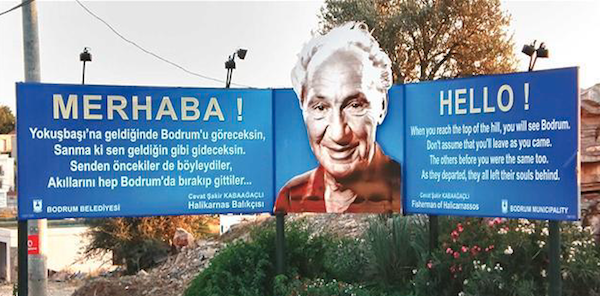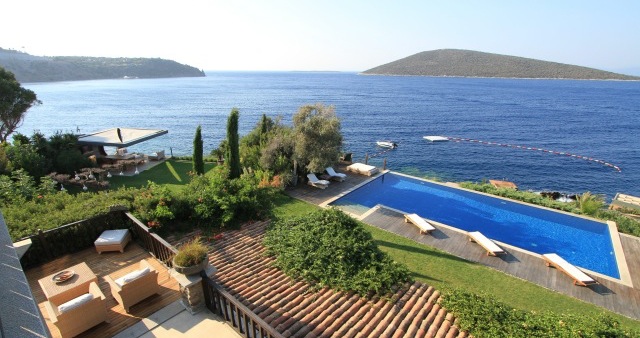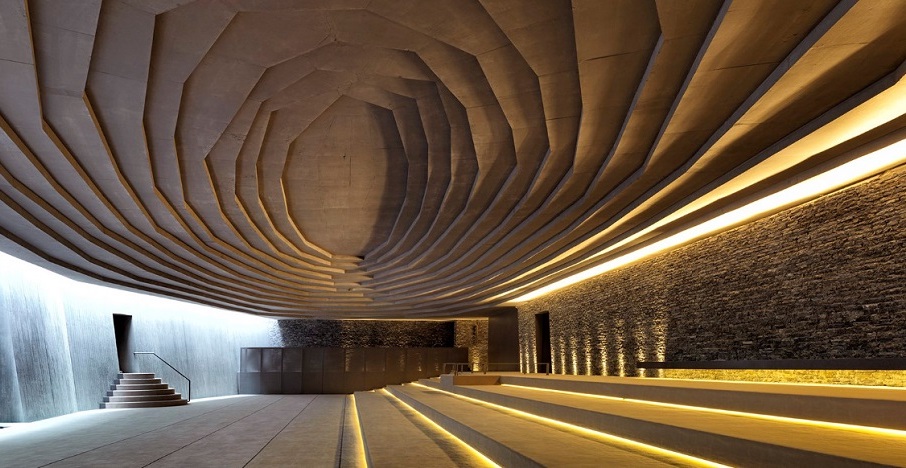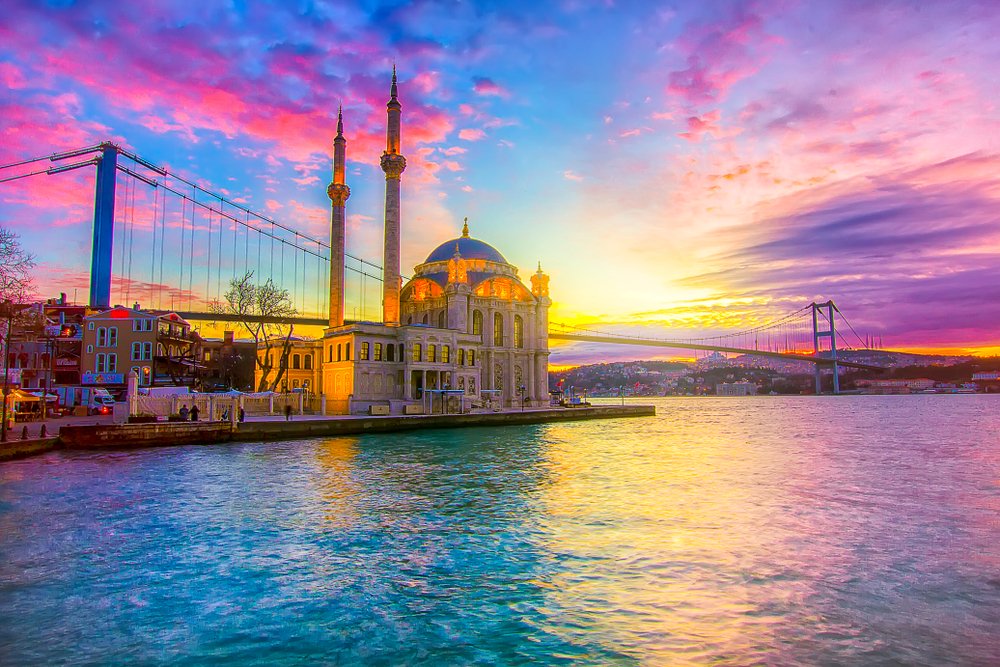
From Herodotus, the Greek historian referred to as the daddy of historical past, to modern-day celebrities, Bodrum has been residence
to many well-known residents. Nonetheless, the face dominating the city Is a slightly good-looking, strikingly pleasant, smiling face.
A face you already know since you've seen it so typically. It's the face that welcomes you with a big 'MERHABA' on an indication as
you descend into Bodrum on the airport street with phrases claiming you will not be fairly the identical individual while you depart
as while you got here.
“while you attain the highest of the hill, you will note Bodrum. Don’t assume that you're going to depart as you got here. The others
earlier than you have been the identical, too. As they departed, all of them left their souls behind.”
In addition to being a recognisable face, the Fisherman of Halicarnassas, or Cevat Sakir Kabaagacll seems In different guises
on the peninsula: a major Bodrum thoroughfare - Cevat Sakir Caddes| - bears his identify, and his bust sits reverse the
Beldiye constructing.
Figuring out his sobriquet as The Fisherman of Halicarnassus, | had fancied he was some Roman or Greek hero and felt embarrassed to
uncover that he belonged to Bodrum’s latest historical past slightly than historical Halicarnassus.
In truth, he was born in Crete in 1890, and educated on the American Robert School in Istanbul and at Oxford, England. After the forty fifth
anniversary of his demise this yr | determined it was excessive time to search out out extra in regards to the Halikarnas Balikcisi and went alongside to the
Bodrum Maritime Museum to take heed to his grandson speak.
By then, I had delved into Roger Williams’ wonderful ‘The Fisherman of Halicarnassus’, a small and
readable introduction to "the person who made Bodrum well-known". | discovered Cevat Sakir was a author of
novels and quick tales, in addition to being a insurgent, even a hippy, earlier than his time. He'd first come to
Bodrum in exile in 1925, the place he served 18 months of a 3 yr sentence for writing a narrative about
Ottoman troopers who had been sentenced to demise for defecting. He fell foul of the authorities, however
there was a little bit of a muddle about him being incarcerated in Bodrum Fortress, which was extra of a wreck
than a jail and so, slightly fortuitously, Cevat Sakir discovered himself below home arrest in a seaside
dwelling years earlier than vacationers would pay inflated rents for the privilege. There he shaped an affinity with
the native conventional sponge divers, though he was not allowed to accompany them at sea.
‘As we sat below one of many two towering eucalyptus bushes planted by Kabaagacli 100 years earlier than|
in entrance of the museum, his grandson proudly informed me, in tender, nice Boston tones, having spent his,
youth in America, an analogy of warfare that his grandfather had associated to him asa little one.
When he was a really younger boy enjoying together with his toys, his grandfather had crumbled some bread and
positioned the crumbs on a close-by ants nest. Because the ants greedily devoured the breadcrumbs, his
grandfather positioned some small items of meat on prime, which attracted bigger ants, who wolfed up the smaller ants. He recollects him
recounting that this was an illustration of warfare and demonstrated how futile and horrible it was by which solely the mightier and extra
highly effective prevail on the expense of the weak and feeble.
| discovered from him how Cevat Sakir, as one in all Turkey's first ecologists, used to wander round Bodrum with pockets stuffed with seeds that
he would sow in numerous spots and the way he was accountable for introducing the now ubiquitous Bougainvillea in addition to the Bella
‘Sombra tree to Bodrum at a time when solely these vegetation that could possibly be eaten have been prone to be grown. The palm bushes that line the
harbour, lending an unique air to the city, are additionally on account of his plantings and the bushes bear his identify consequently.
When Cevat Sakir accomplished his sentence in Istanbul, he wasted no time in returning to his former place of exile to reacquaint himself
with the Bodrum sponge divers. Now he may forged off with them to sea and thus sowed new ‘seeds’ within the guise of the primary Blue
Voyages (Mavi Yolculuk), changing into a modern-day Homer and exploring antiquities, a lot of which have been solely discoverable by boat in
these days.
When former French President, Georges Pompidou was proven spherical Ephesus throughout Cevat Sakir's time asa vacationer information declared
that he had “lastly met Homer.” The Fisherman would have change into aware of the British Museum from his time in England. He
would have identified of Charles Newton, the British archeologist, accountable for the gaping holes in what remained of the Mausoleum
of Halicarnassus, one of many seven wonders of the traditional world. The statues and different antiquities Newton eliminated at the moment are housed
within the well-known museum.
On additional studying, it will seem that Cevat was no stranger to jail, having been incarcerated on a few different events.
Moderately shockingly, he had been sentenced to 14 years for killing his father in 1914. What introduced this about seems to be shrouded
in some thriller and by no means talked about, however he served some seven years of this sentence earlier than being launched on the time of the
forming of the Turkish Republic.
Cevat Sakir Kabaagacli: author, raconteur, vacationer information, exile, prisoner, insurgent, ecologist, founding father of the now well-known Blue Voyages, and
presumably, fisherman, made the next remark when the principle Bodrum road was named after him. He noticed wryly that
‘donkeys and camels would now do to him what governments had accomplished to him all his life!”



